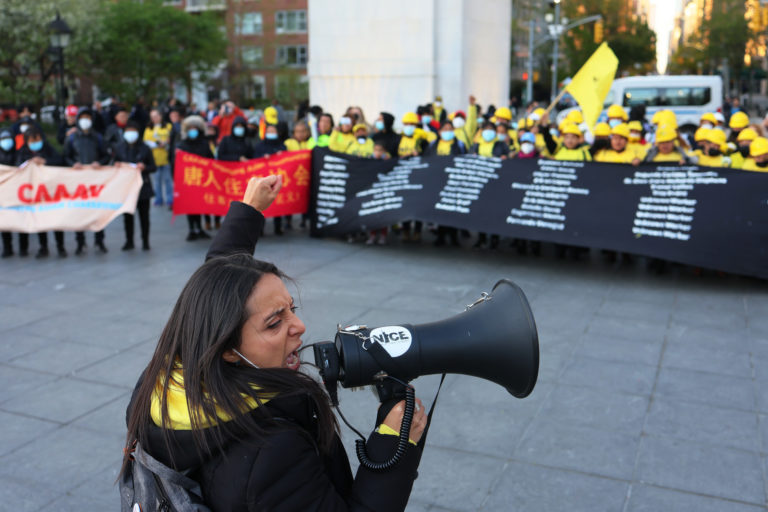Ross Evans is a student at Harvard Law School and a member of the Labor and Employment Lab.
Wells Fargo is investigating charges of gender discrimination in its wealth management business, according to a Wall Street Journal investigative piece. Only 12 of Wells Fargo’s 45 wealth-management regional managing directors are female, and reportedly, most of these women convened in June to discuss their frustrations. These women’s complaints include the fact that none of the seven senior managing directors are women, that high-performing women have been turned down for promotions awarded to males, and that management has made sexist remarks to them. Indeed, some of these women allege that Jay Walker, who heads Wells Fargo’s wealth management division, has not only “often called women ‘girls’ or told them to put their ‘big girl panties on,” but has also suggested that “[w]omen should be at home taking care of their children.”
On Friday, President Trump signed an executive order that intends to better enable small businesses to offer their employees retirement plans. More specifically, the executive order “directs the Labor and Treasury departments to review regulations that make it harder for small companies to band together to set up retirement plans.” By deregulating such multi-employer retirement plans, the idea is that small companies could realize synergies and decrease the costs associated with offering employees retirement plans.
On Thursday, Microsoft announced that it would be implementing a new policy for its vendors with 50 or more employees. Specifically, within the next year, such vendors must begin offering its Microsoft-contracted employees 12 weeks of paid parental leave (capped at $1,000 per week).
In advance of Labor Day Weekend, The National Law Review published an article entitled “Labor Day 2018: State of the U.S. Labor Unions.” The article explains how, notwithstanding strong support for labor unions in the United States, organized labor membership remains “at a near all-time law of 6.5 percent.” Similarly, the Pittsburgh Tribune-Review examined this same dichotomy, but instead focused on the state of Pennsylvania (rather than the entire country).






Daily News & Commentary
Start your day with our roundup of the latest labor developments. See all
December 19
Labor law professors file an amici curiae and the NLRB regains quorum.
December 18
New Jersey adopts disparate impact rules; Teamsters oppose railroad merger; court pauses more shutdown layoffs.
December 17
The TSA suspends a labor union representing 47,000 officers for a second time; the Trump administration seeks to recruit over 1,000 artificial intelligence experts to the federal workforce; and the New York Times reports on the tumultuous changes that U.S. labor relations has seen over the past year.
December 16
Second Circuit affirms dismissal of former collegiate athletes’ antitrust suit; UPS will invest $120 million in truck-unloading robots; Sharon Block argues there are reasons for optimism about labor’s future.
December 15
Advocating a private right of action for the NLRA, 11th Circuit criticizes McDonnell Douglas, Congress considers amending WARN Act.
December 12
OH vetoes bill weakening child labor protections; UT repeals public-sector bargaining ban; SCOTUS takes up case on post-arbitration award jurisdiction